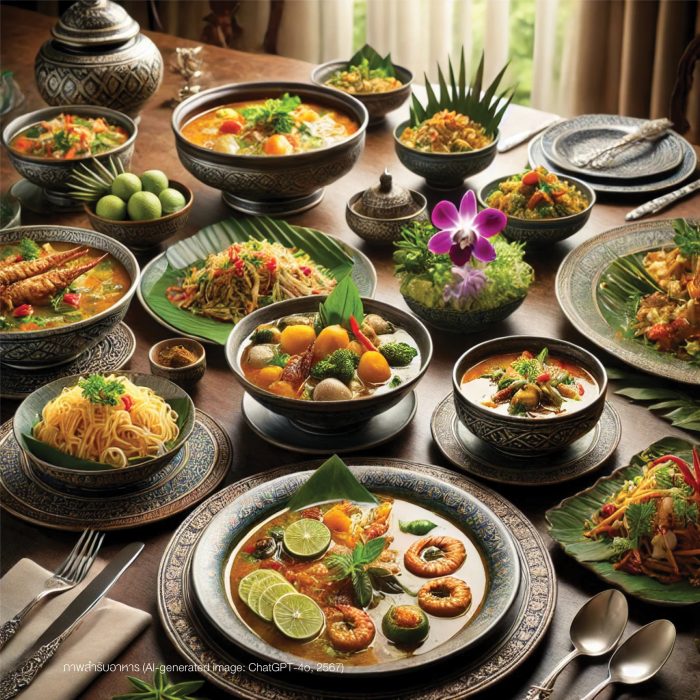
A delightful variety of authentic Thai dishes.
The study of Dr. Nippatchanok Nachapinij, an expert in gastronomy, offers an insightful perspective using the academic framework of gastronomy to explore how the interplay between food science and art highlights the phenomena affecting both individuals and the society. Such as interplay has evolved into a shared value, co-created by humans and nature, as nature’s offerings make their way to humans’ mouth or what globally recognized as “from farm to table.” Once humans benefit from these offerings, we strive to enhance and preserve food security through various means, shaped by the specific context in which we live. However, in an era marked by environmental challenges inevitably driven by human activity, the relationship between humans and food has taken on new urgency. It extends beyond the simple notions of “living to eat” or “eating to live”
Thus, the traditional “from farm-to-table” concept is no longer sufficient. Scholars worldwide are seeking to broaden their perspectives by stimulating society through discussions that involve food. The United Nations’ Sustainable Development Goals (SDGs) are receiving close attention, as international consumers, particularly in developed countries, regard sustainability as more than just a passing trend. Eating habits have shifted a lot in developed countries, for example, when it comes to environmental sustainability, home cooking has become a new luxury, along with the seasonality and rejection of fast food known as the slow food movement. Artisan or crafted food has also become a highly prized commodity, as the global food supply is dominated by mass-produced factory goods. As a result, handcrafted food has become increasingly rare and difficult to produce. This kind of craftsmanship can never be replicated by machines. The preservation of traditional food knowledge before it fades is an urgent concern that UNESCO is addressing through storing data in the system called Food Atlas. The effort both elevates local cuisines to the global stage and serves as a strategic initiative to encourage people to move out from cities to foster success in their own local communities by using food as a tool. As part of this initiative, cities are being developed under the “Creative City” project, giving rise to the concept of food as a form of soft power simultaneously.
In the topic of dining as a space for happiness included in the food and dining course at Suan Dusit University, Dr. Nipatchonok also talked about the broader theme of cities and food, which highlighted how food intertwines with various aspects of life, including physical, mental, social, and economic values. These connections will be further elaborated upon throughout the course.
